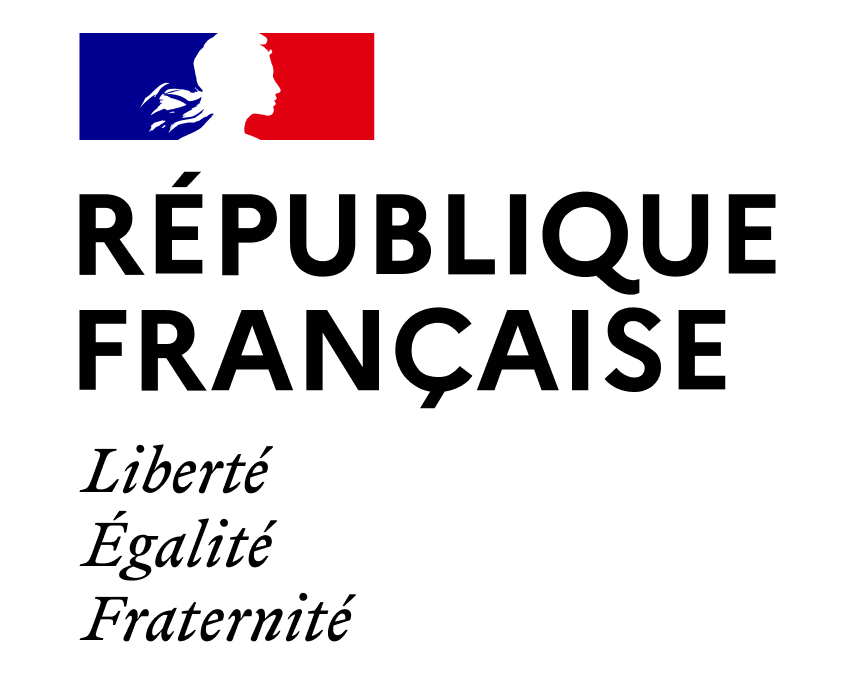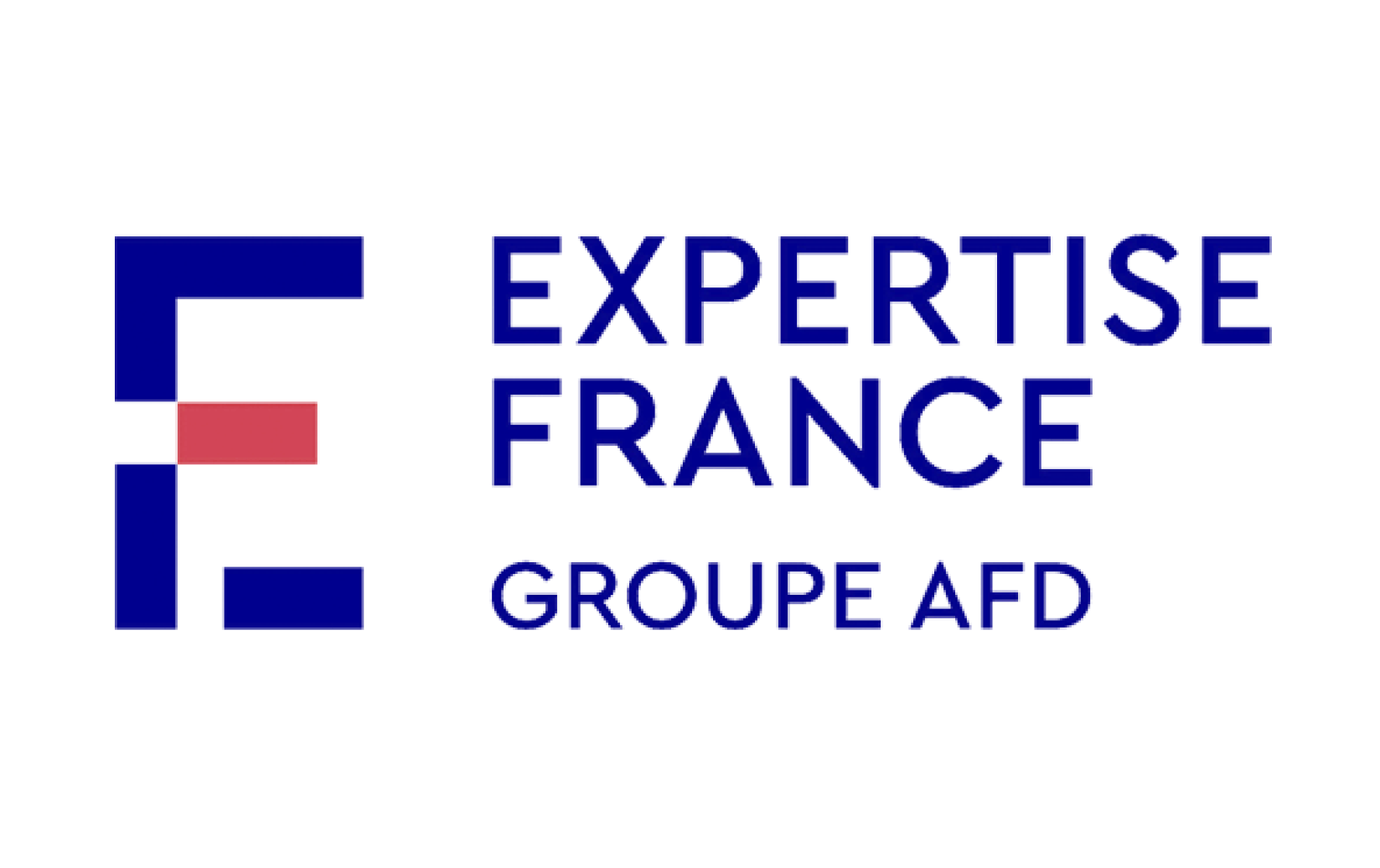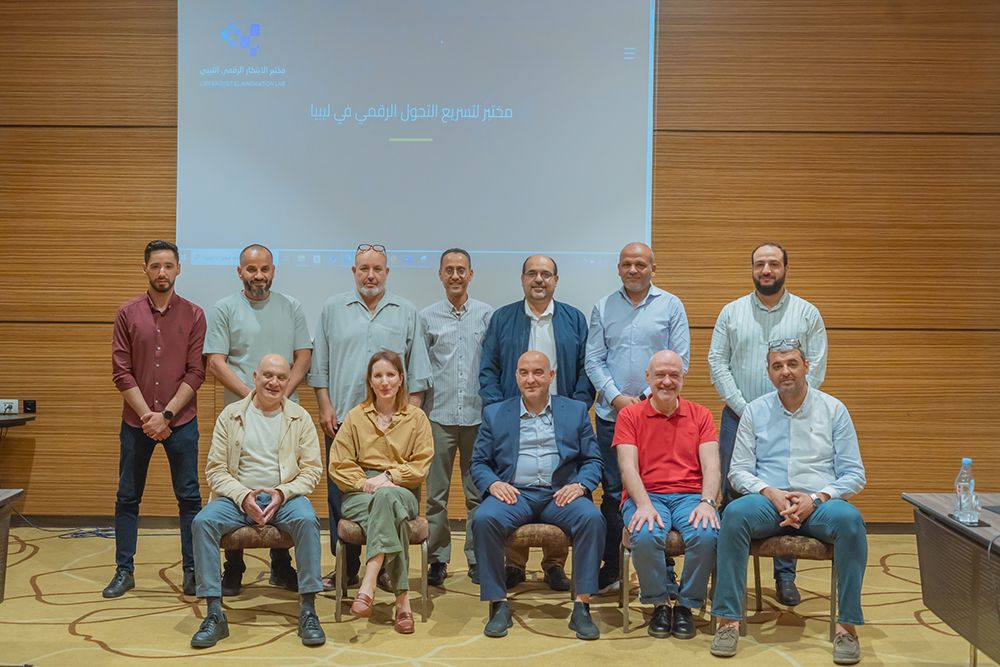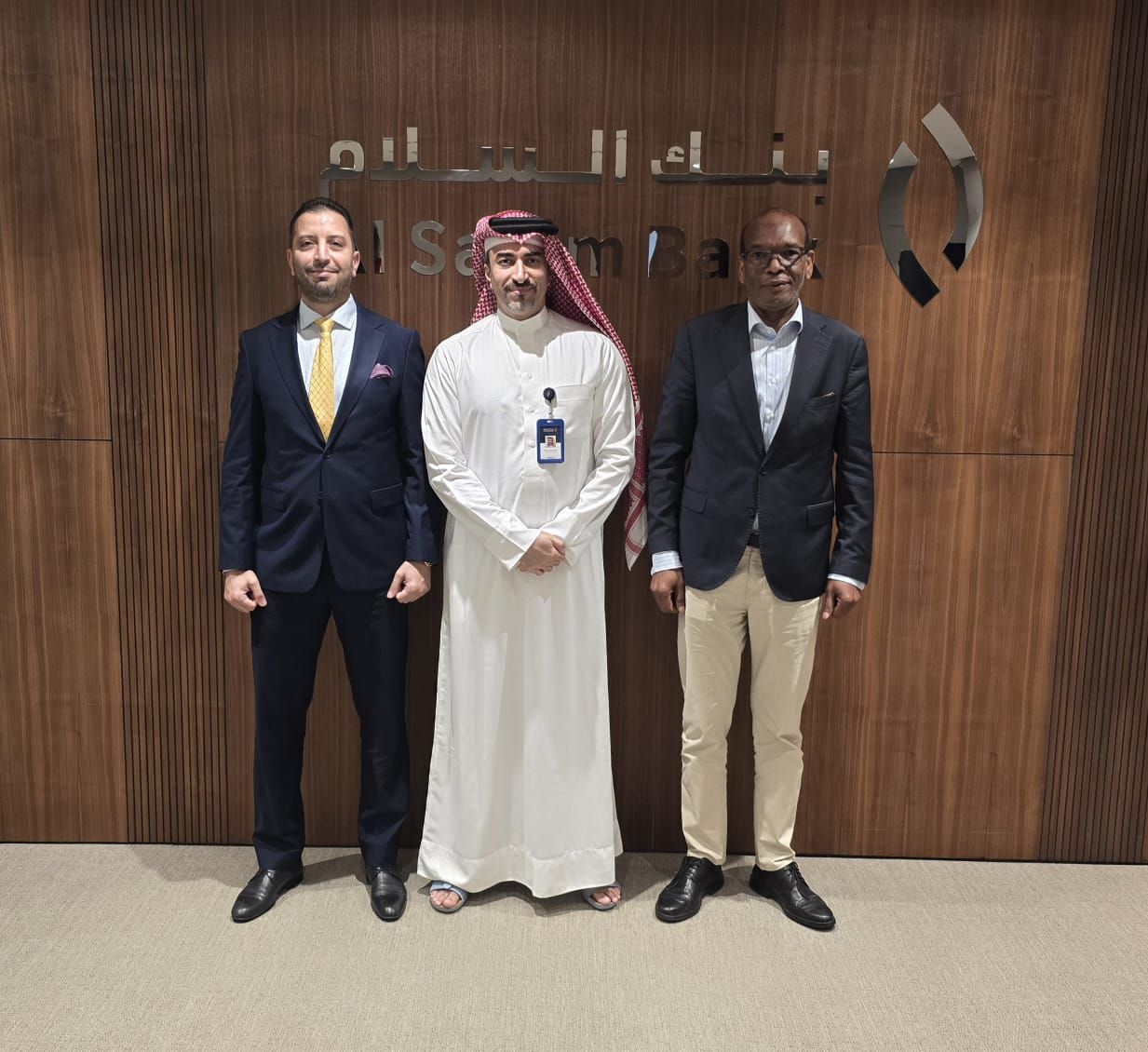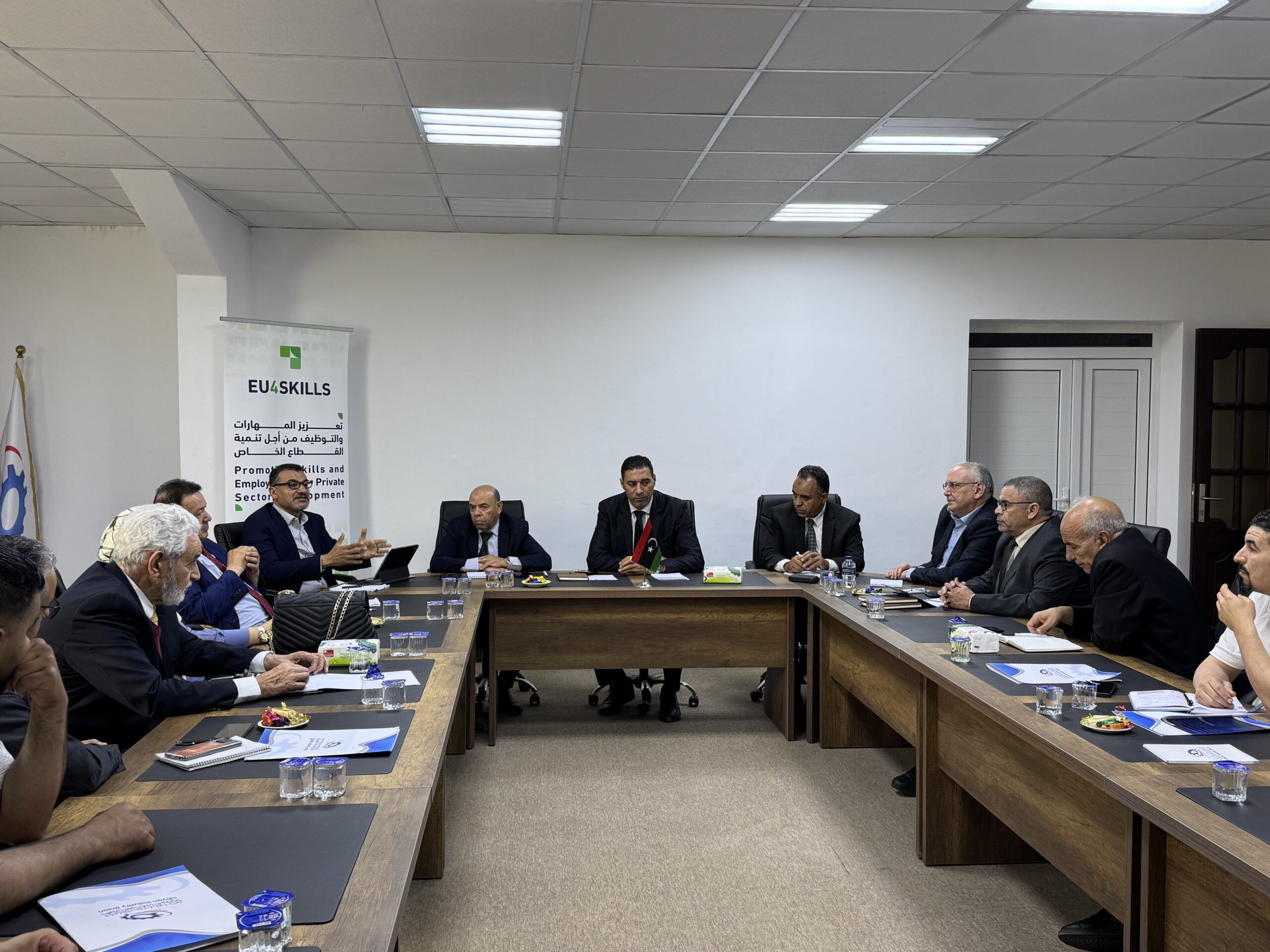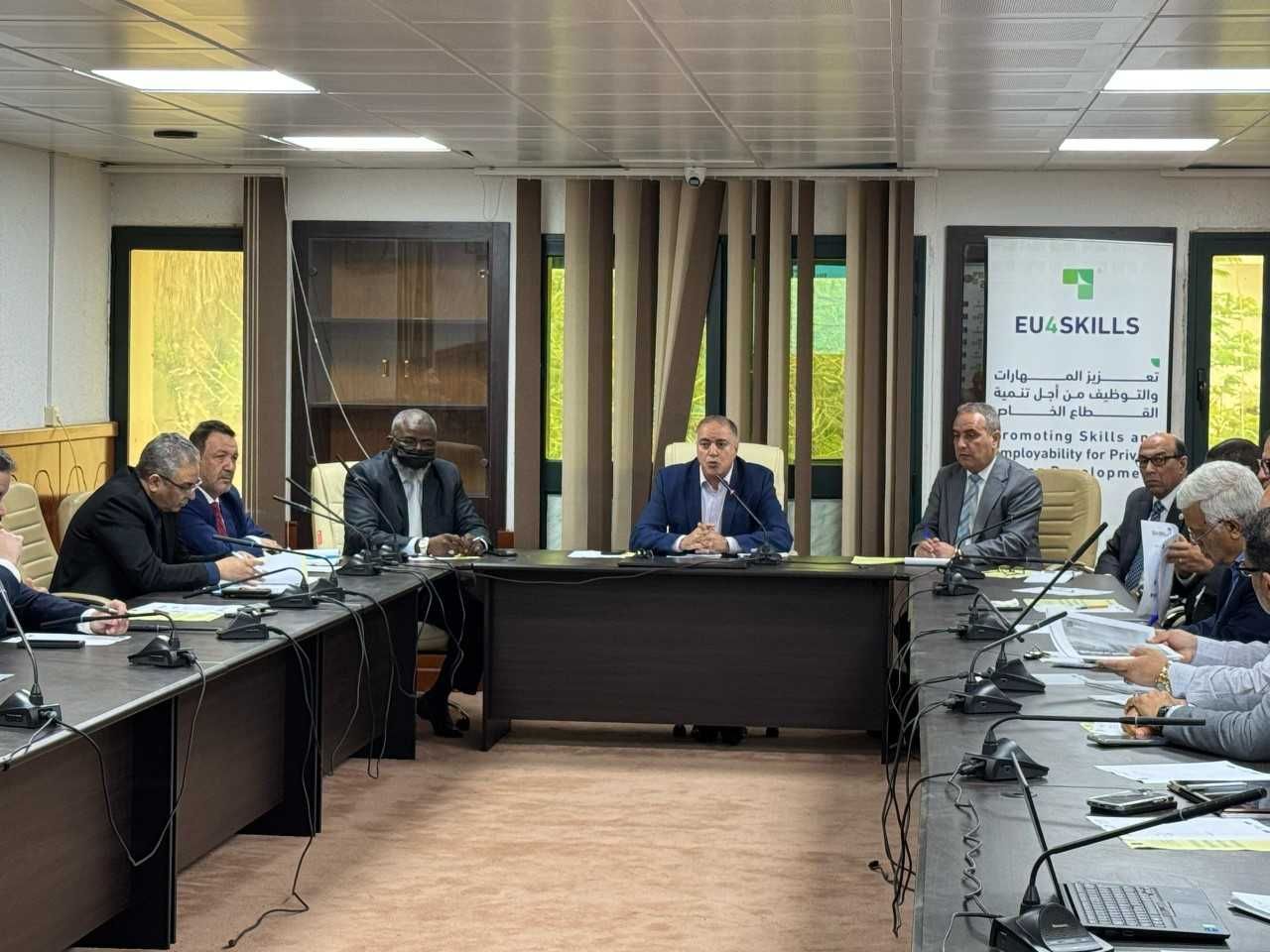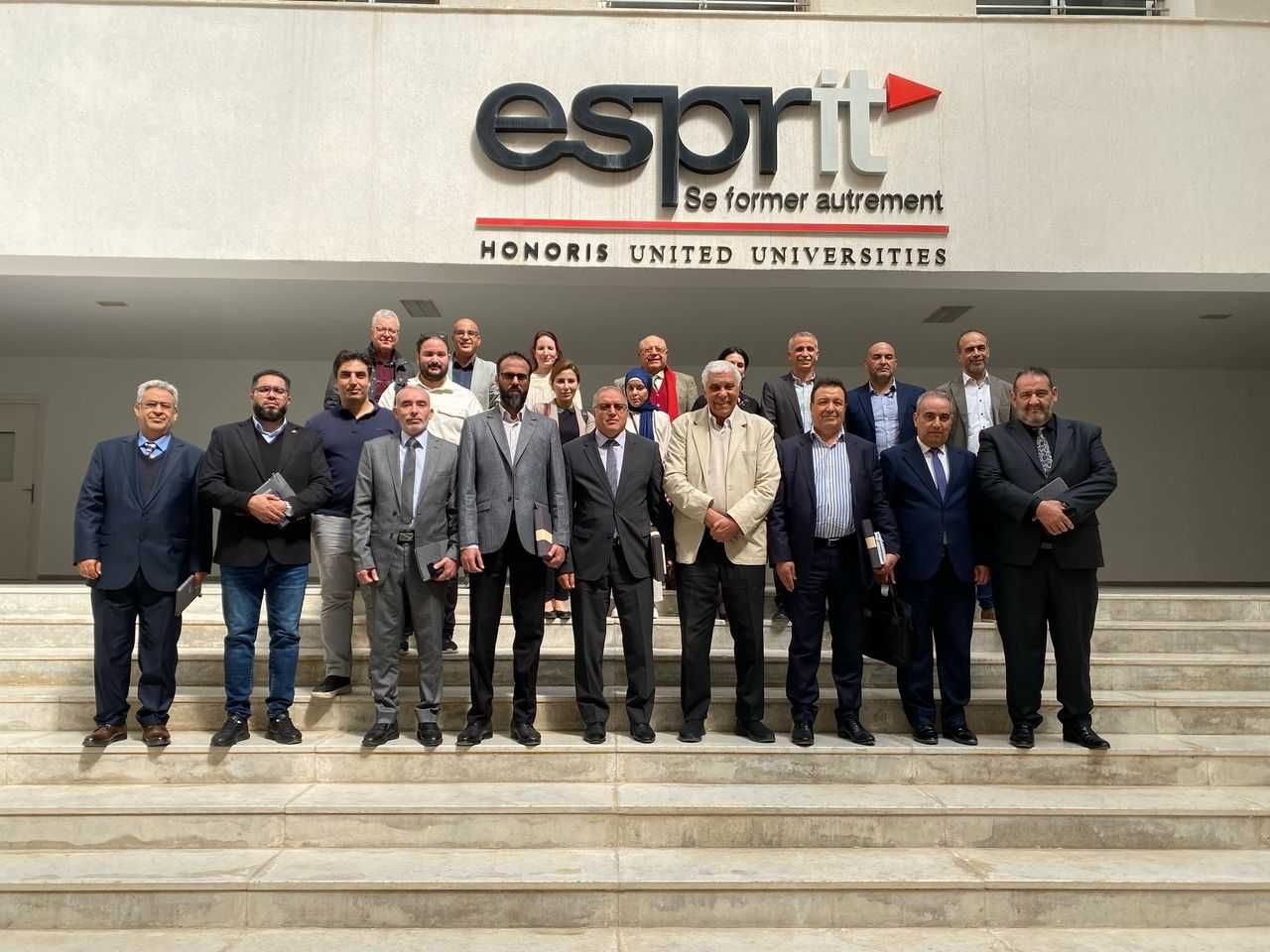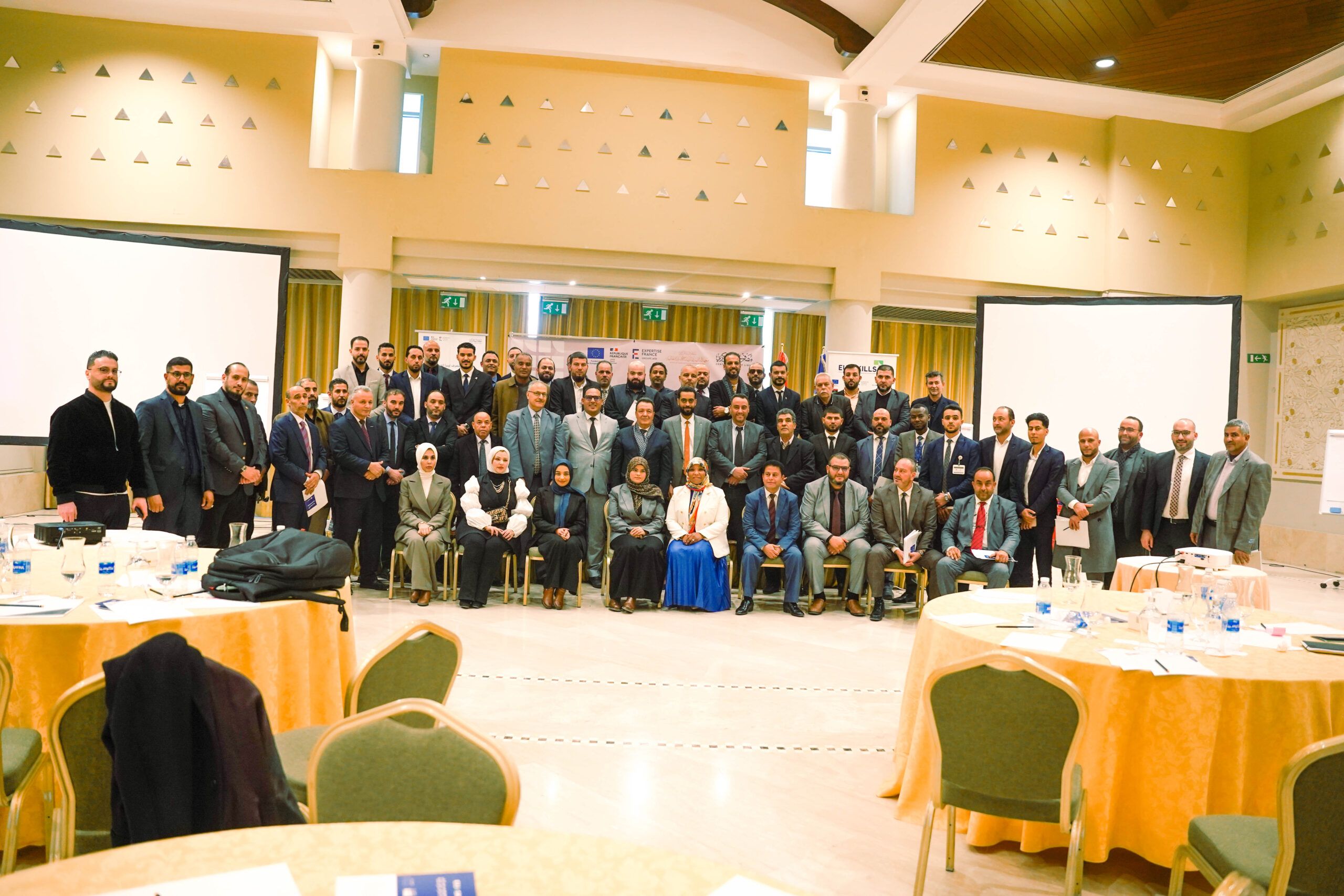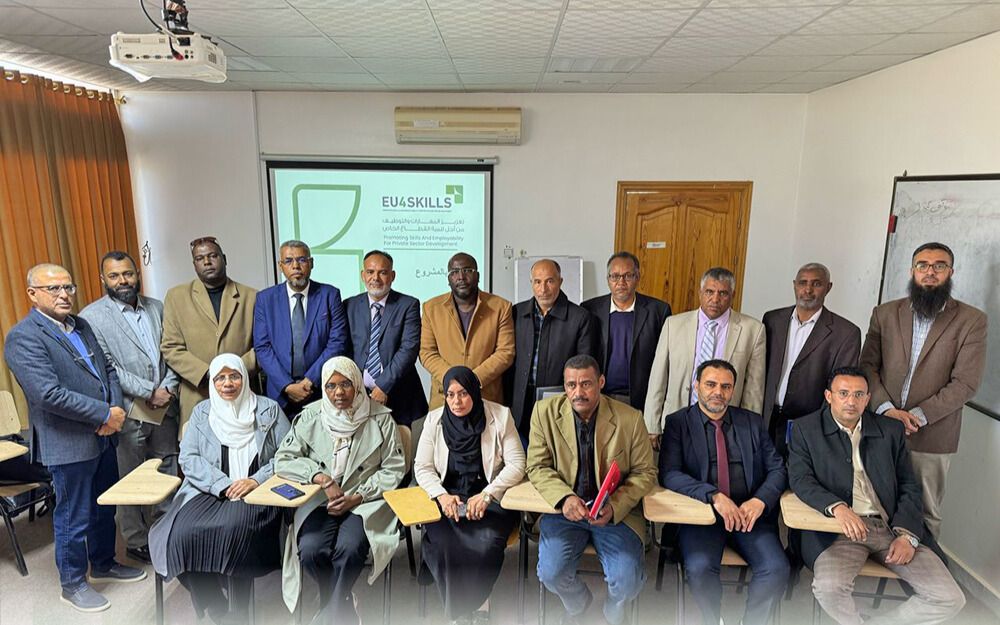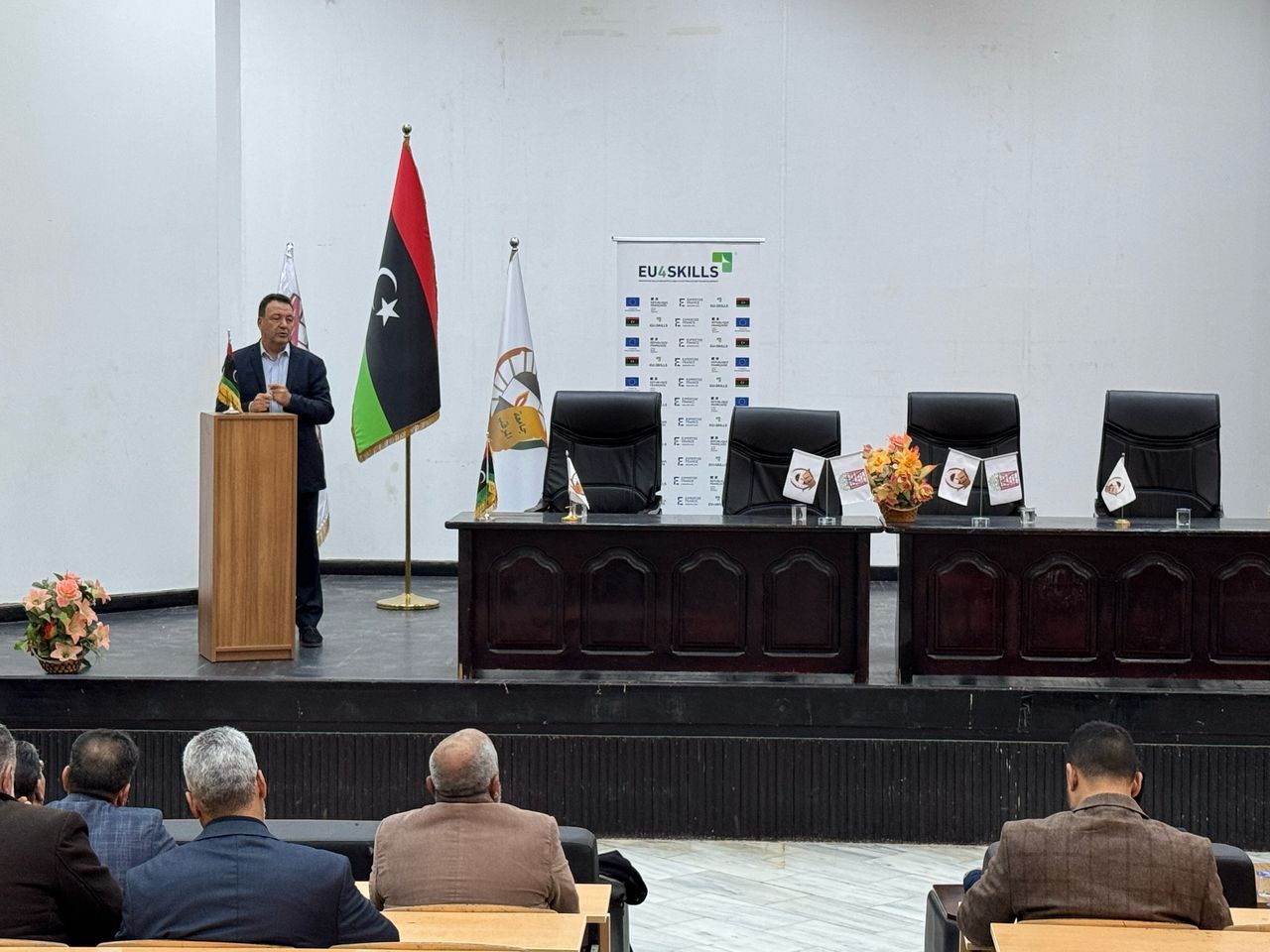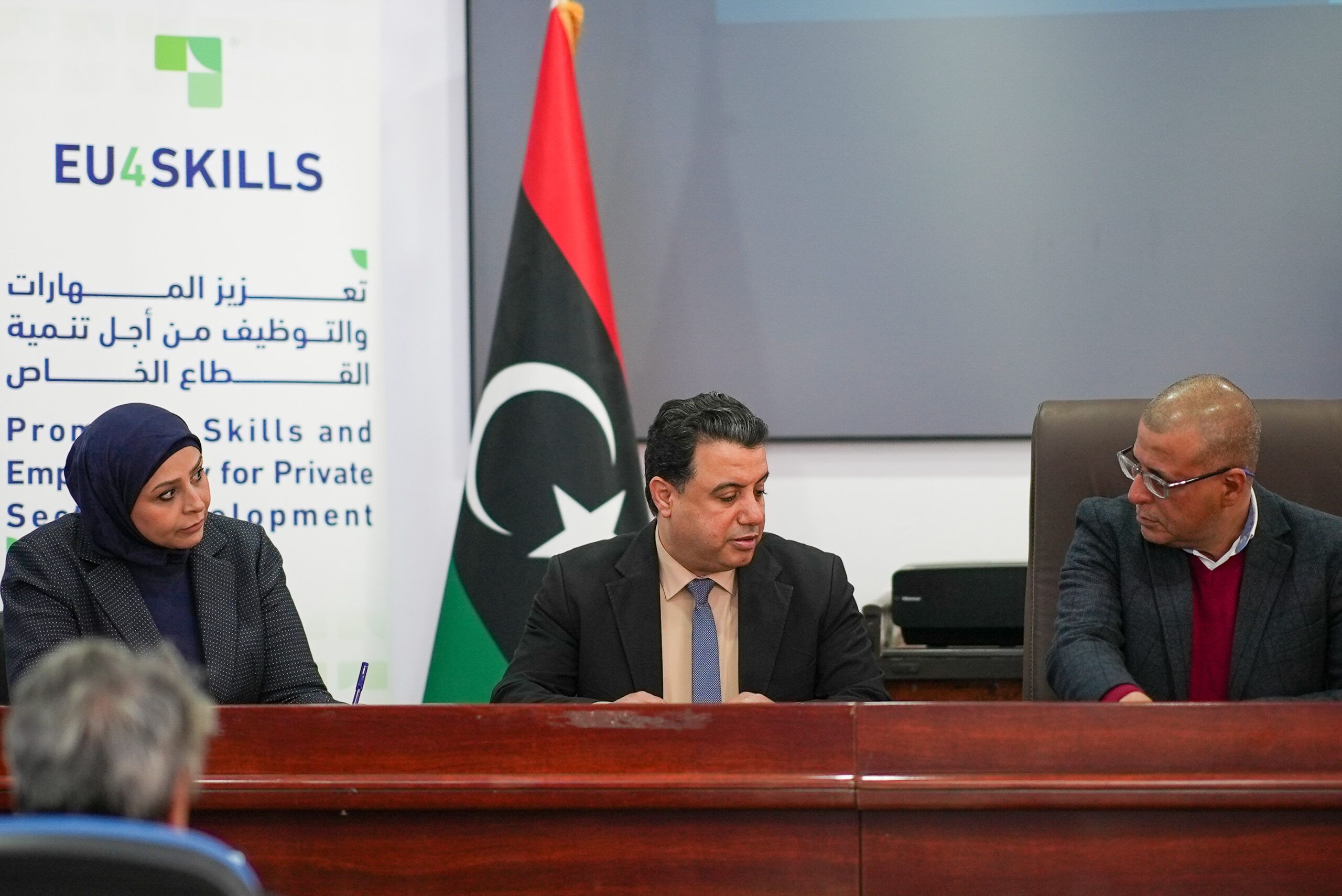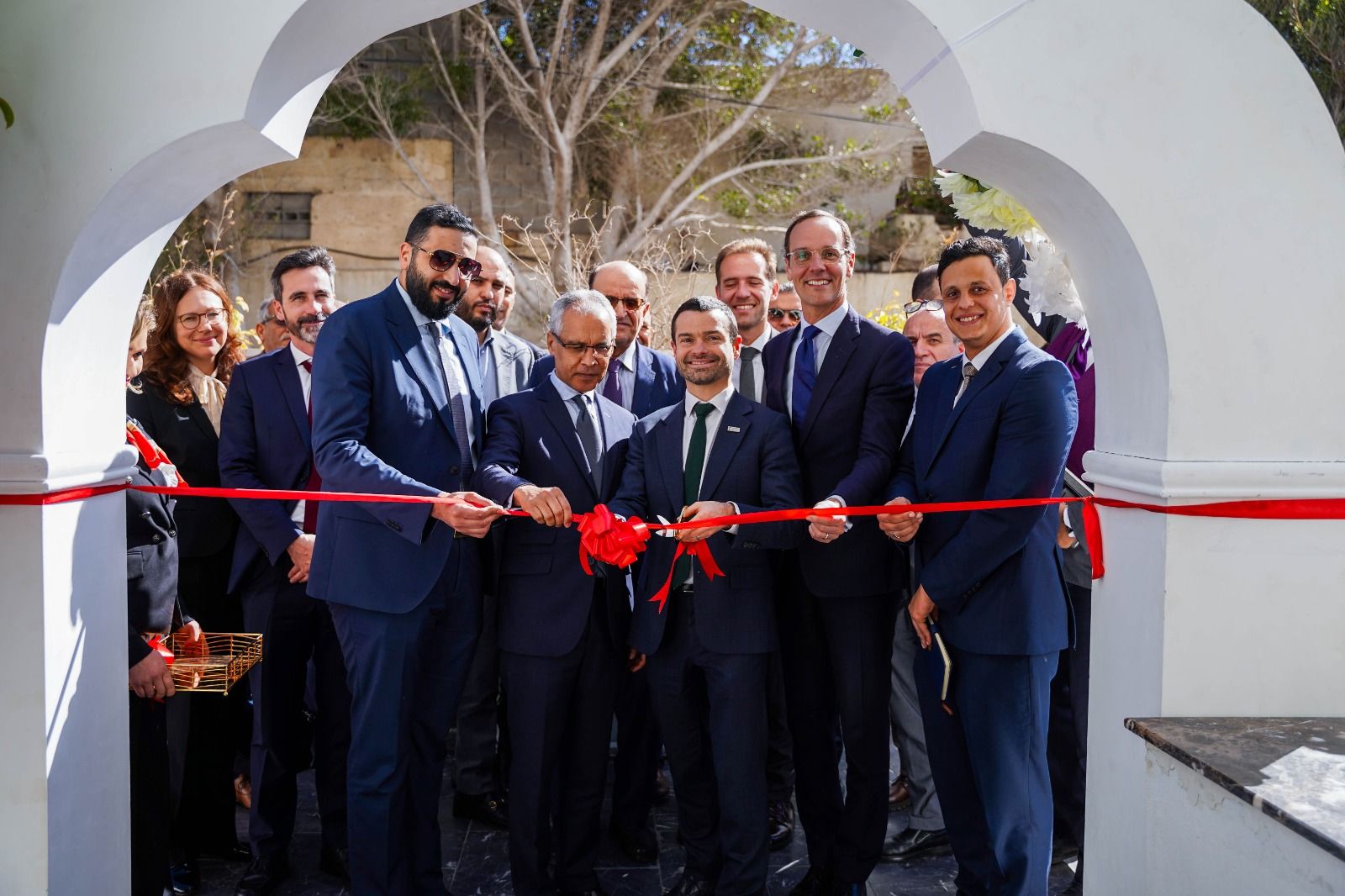Enhancing Libya’s Digital Transformation by Adapting the PIX Platform and Developing a National Maturity Index.
On May 10, 2025, the second Digital Workshop of the Libyan Digital Lab concluded, focusing on exploring the potential transfer of the innovative “PIX” digital learning and assessment platform to Libya, as well as laying the groundwork for a national Digital Maturity Index for Libyan institutions.
Over the course of two days, the workshop hosted Mr. Patrick AZAN, Digital Project Manager Expert from the French Ministry of Finance, and Mr. Perica SUCEVIC, an expert in digital law, open data, and digital administration. Members of the Libyan Digital Lab also took part in in-depth discussions on adapting the PIX platform to meet the specific needs of Libyan students, teachers, and public sector employees.
Pix is a leading French platform designed to evaluate and develop individuals’ digital skills. It has played a significant role in strengthening digital culture within French educational and administrative institutions.
Through collaboration with the Libyan Digital Lab, Expertise France aims to bring this experience to Libya and help drive a meaningful shift in the country’s digital landscape by providing individuals and institutions with an effective, interactive tool to measure and improve their digital competencies.
The workshop concluded with the presentation of practical recommendations and follow-up plans to continue developing the digital platform and designing the readiness index, with the ultimate goal of enhancing digital skills and increasing the capacity of Libyan institutions to undergo digital transformation.
This workshop is part of the EU4Skills project, funded by the European Union with co-financing from the French government, and implemented by Expertise France in cooperation with Libyan partners. The project aims to support skills development and improve employability by updating educational curricula, empowering youth, and encouraging digital transformation across various sectors.
